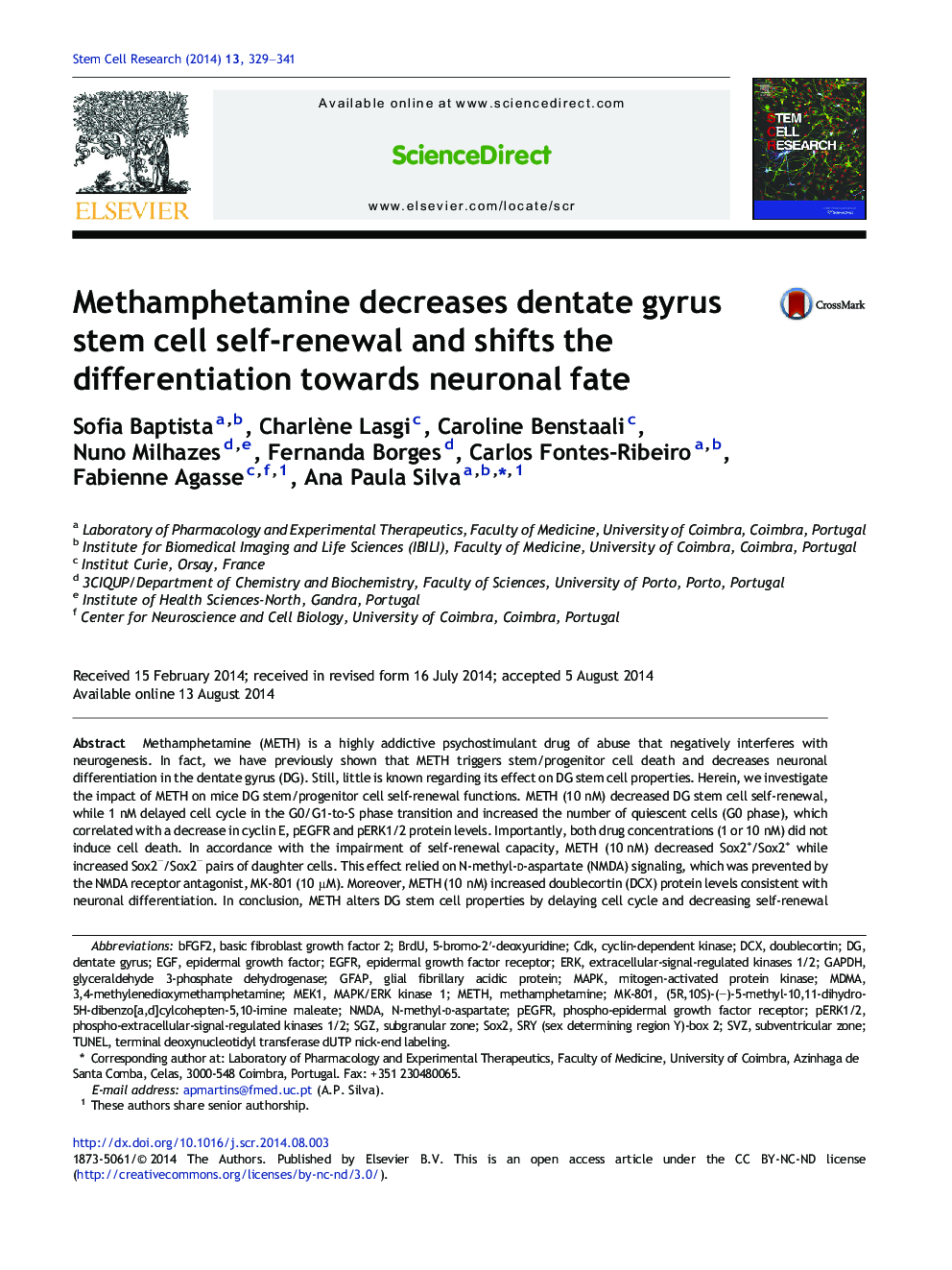| Article ID | Journal | Published Year | Pages | File Type |
|---|---|---|---|---|
| 2094171 | Stem Cell Research | 2014 | 13 Pages |
•METH decreases the phosphorylation levels of EGFR and ERK1/2.•METH delays cell cycle in G0/G1-to-S phase transition and decreases cyclin E levels.•Methamphetamine (METH) decreases DG stem cell self-renewal.•METH shifts cell division towards differentiation via activation of NMDA receptors.•METH enhances neuronal differentiation in DG neurospheres.
Methamphetamine (METH) is a highly addictive psychostimulant drug of abuse that negatively interferes with neurogenesis. In fact, we have previously shown that METH triggers stem/progenitor cell death and decreases neuronal differentiation in the dentate gyrus (DG). Still, little is known regarding its effect on DG stem cell properties. Herein, we investigate the impact of METH on mice DG stem/progenitor cell self-renewal functions. METH (10 nM) decreased DG stem cell self-renewal, while 1 nM delayed cell cycle in the G0/G1-to-S phase transition and increased the number of quiescent cells (G0 phase), which correlated with a decrease in cyclin E, pEGFR and pERK1/2 protein levels. Importantly, both drug concentrations (1 or 10 nM) did not induce cell death. In accordance with the impairment of self-renewal capacity, METH (10 nM) decreased Sox2+/Sox2+ while increased Sox2−/Sox2− pairs of daughter cells. This effect relied on N-methyl-d-aspartate (NMDA) signaling, which was prevented by the NMDA receptor antagonist, MK-801 (10 μM). Moreover, METH (10 nM) increased doublecortin (DCX) protein levels consistent with neuronal differentiation. In conclusion, METH alters DG stem cell properties by delaying cell cycle and decreasing self-renewal capacities, mechanisms that may contribute to DG neurogenesis impairment followed by cognitive deficits verified in METH consumers.
Graphical abstractSchematic representation of the effect of methamphetamine in dentate gyrus stem cell properties. METH down-regulates the phosphorylation levels of EGFR and ERK1/2, compromising DG cell proliferation as observed by down-regulation of cyclin E levels. As a result, METH increases the population of quiescent cells and delays the transition from G0/G1 to S phase of the cell cycle. These effects may result in the decrease of DG stem cell self-renewal under METH exposure. The impairment of self-renewal can direct DG stem cells to differentiate as observed by the increase of DCX expression in neurospheres.Figure optionsDownload full-size imageDownload high-quality image (131 K)Download as PowerPoint slide
